Nearly two decades ago, the Massachusetts English Language Education in Public Schools Initiative (Question 2) was passed, stating that Massachusetts’ English Learners (ELs) “must be taught English by being taught all subjects in English and being placed in English language classrooms,” (Ballotpedia, 2002). The bill effectively “eliminated most bilingual programs in the state with [no real] model to replace it],” says Sean Brooks, a longtime teacher and leader in Massachusetts' EL education landscape. Brooks began his teaching career several years after the bill was passed, during a time of great confusion for MA schools where “many of our English Language Learners were left to sink or swim.”
Brooks and his colleagues in Boston Public Schools decided to make sure their students swam instead of sinking.
Despite the fact that teachers were given little guidance or even a real curriculum to support their ELs, they were determined to help their students to succeed. Brooks says teachers began to collaborate in unexpected ways, learning to more effectively communicate and co-teach in inclusive classrooms. Teachers also began to “feel much less isolated and [more] fulfilled at work,” which led to stronger teacher relationships and improved practice that led to better outcomes for all students, not just their ELs.
As MA gradually shifted back toward supporting students in their home languages “when possible and helpful” over the last decade, teachers have retained their newfound skills and improved relationships with one another. Unexpectedly, teachers have also retained an increased sense of ownership for all students; “I now have the sense that every teacher in the building is an English as a Secondary Language (ESL) teacher,” says Brooks.
Now, Brooks is an Instructional Coach at The Curtis Guild (pronounced Guy-uld) Elementary school, located in East Boston, Massachusetts and working alongside Principal Karen McCarthy.
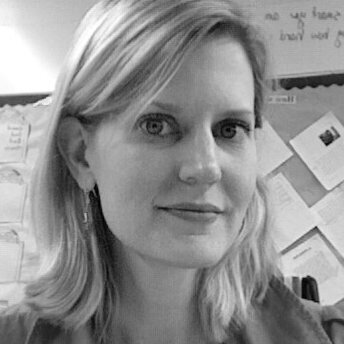
The Guild Principal, Karen McCarthy

The Guild Instructional Coach, Sean Brooks
The Guild serves around 300 students in grades pre-K through 6th, and their EL population is fairly representative of America’s EL population; while the majority of their students speak Spanish at home, there is a growing population of Arabic, French, Portuguese, and Haitian Creole speakers at their school, much like the fact that ELs across the country actually speak more than 150 different languages in their homes, including Arabic, Chinese, Vietnamese and Hmong (Simpson Baird, 2015).
When The Guild shifted to virtual learning more than a year ago, their teachers were once again presented with extraordinary circumstances that enabled them to grow in the ways they support their students, especially their English Learners.

Chelsea Unis, 2nd/3rd grade ESL teacher at The Guild
For Chelsea Unis, a 2nd and 3rd grade ESL teacher, her biggest focus has always been ensuring that her EL students have a strong academic language. Academic language “refers to the oral, written, auditory, and visual language proficiency required to learn effectively in schools and academic programs—i.e., it’s the language used in classroom lessons, books, tests, and assignments, and it’s the language that students are expected to learn and achieve fluency in,” (Ed Glossary).
Unis says that the first step here was for her and her colleagues to norm on that academic language across classrooms. In-person, her classroom is alive with student discourse and engagement. Virtually, though, Unis was apprehensive about sending her English Learners off to un-monitored breakout rooms; would they continue, without adult supervision, to engage in rich discourse that enabled them to gain that strong academic language?
Yes.
Unis’ students actually became stronger at oral communication and using academic language. When her students returned to in-person learning, Unis credited virtual learning with forcing students to hone their own oral communication skills, but also with forcing teachers to trust their students a little more, all of which has ultimately lead to improved student outcomes in her classroom.
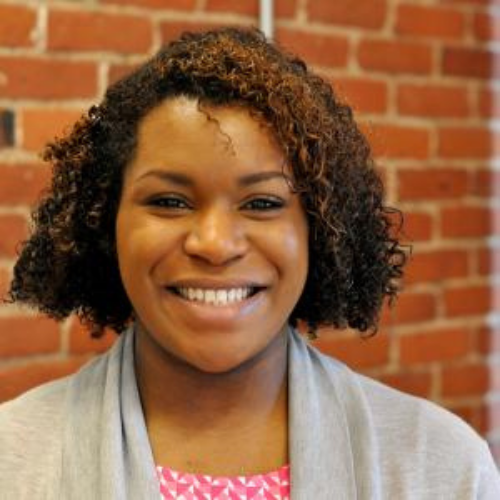.png)
Ulana Ainsworth, kindergarten teacher at The Guild
For Ulana Ainsworth, a kindergarten teacher, the most important thing has always been to ensure that her youngest English learners have a strong social language to use as a stepping stone toward gaining that strong academic language. Prior to the pandemic, Ainsworth spent a lot of time with her students in Harbor View/Orient Heights, the neighborhood surrounding The Guild, where they focused on being able to hold a conversation with multiple exchanges based on their topic of study. For example, students might hold conversations with one another about “things that grow in our Earth,” asking and answering questions like, “What is the plant life cycle?” or “How do plants grow?” or “What is the difference between ‘alive’ and ‘not alive’ as it relates to plants?”
During virtual learning, Ainsworth was forced to reevaluate her methodology. One strategy that proved effective for her was taking advantage of the fact that students were learning at home to learn more about their home lives, their families, their pets, etc. Ainsworth’s relationships with her students and families improved and gave her powerful leverage during moments of difficulty. Ainsworth and Unis both also thought it was tremendously powerful to have siblings and adults nearby who could assist their students more readily and, by default, bring more of the students’ home language into their virtual classrooms.
The Guild’s emphasis on the use of a strong academic language continues to be evident in older grades as well.
Instructional Coach Sean Brooks refers to a strong academic language as “my compass,” and says that The Guild’s ultimate goal is to provide their students with the tools they need to become “agents of change in their communities.” Norming on academic language across classrooms and grade levels was yet another opportunity for teachers at The Guild to improve teacher collaboration and to de-silo their work, says Sean Brooks, who believes that his teachers now view all students as “our students instead of my students and their students,” which has only strengthened teacher culture and practice.
As they finish out their first year of partnership with ANet, teachers and leaders at The Guild are eager to continue working alongside their coach, Alexis Rosenblatt.
Although The Guild’s leadership team was apprehensive about bringing on a new partner, particularly during a school year filled with so much other change and uncertainty, Brooks says that their ANet coach Alexis Rosenblatt assuaged that apprehension by being able to nimbly determine where teachers and leaders were at in any given moment, but also by pushing them out of their comfort zone to the benefit of their students. Rosenblatt asked questions like, “What are [school leaders] capable of this week?” and “What are your teachers capable of this week?” but also “... and why do you want to do that?” which forced The Guild to evaluate if/how their weekly actions contributed to progress toward their larger instructional priorities.
In addition to the targeted support they receive from Rosenblatt, members of The Guild’s instructional leadership team have also engaged this year in a multi-part professional learning series around establishing and using math language routines and the impact it can have on ELs in particular, led by Rosenblatt, Becca Varon, ANet’s Director of Math Content Learning, and Jeff Zwiers, a senior researcher at the Stanford Graduate School of Education and director of professional development for Understanding Language, a research and professional learning project focused on improving instruction and assessment of all students, with an extra emphasis on serving the needs of linguistically and culturally diverse learners.
The series allowed teachers and leaders to better understand how the four domains of language—speaking, reading, writing and listening—can/should show up in math classrooms and how having structured, consistent routines for use of math language helps English Learners gain a firmer, more equitable grasp of academic language.
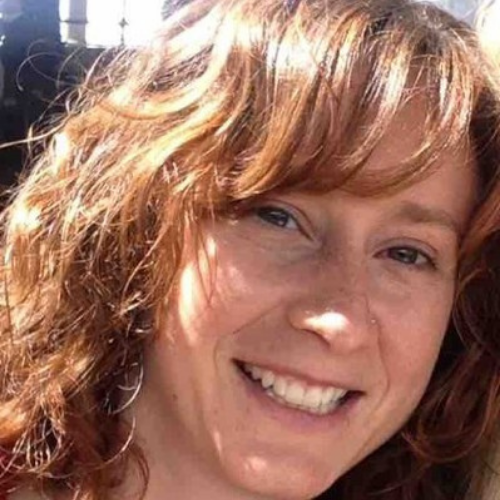.png)
Alexis Rosenblatt, ANet’s Director of School Support
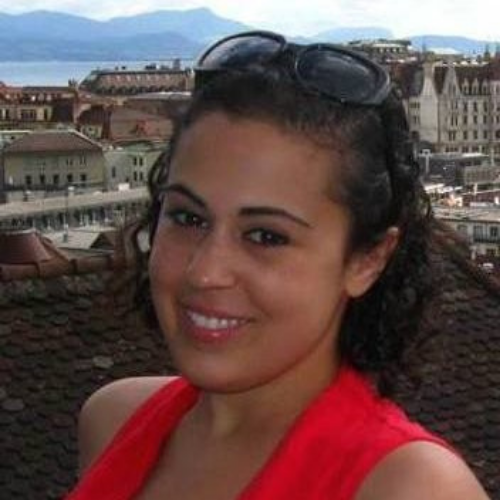.png)
Becca Varon, ANet’s Director of Math Content Learning
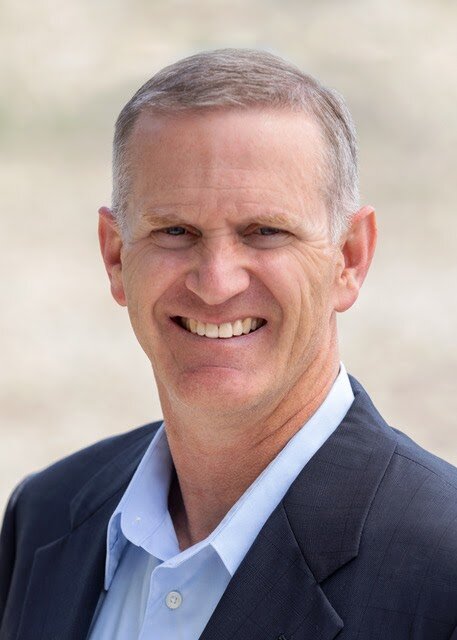
Jeff Zwiers, senior researcher at the Stanford Graduate School of Education and the director of professional development for Understanding Language
As ANet learns more about unique populations of students like English Learners, we are also adapting the ways in which we support educators and their students.
In particular, ANet is now offering targeted, specialist support in a variety of areas to support partners as they work to address inequities amongst marginalized students, including: support for English Learners, social-emotional learning, supporting students with diverse learning and thinking needs, foundational literacy skills, and racial equity. The team of ANet coaches leading this work is headed up by Brittany Hurd, one of ANet’s Coaching Impact Leads.
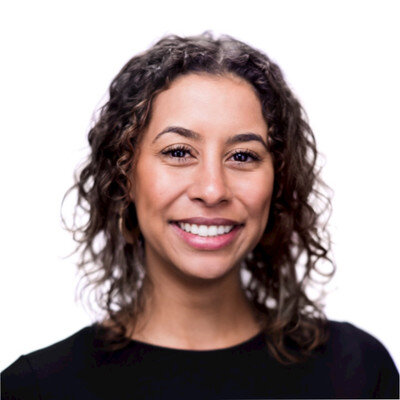
Brittany Hurd, ANet’s Coaching Impact Lead
Hurd’s team works to strengthen ANet’s internal expertise around these high-impact content areas while helping other coaches to provide targeted coaching aligned to schools’ instructional priorities.
.png)
ANet’s Specialist Team, left to right: Dr. Broderick Boxley: Equity, Dr. Ayanna Cooper: Multi-Language Learners, Erin Gilbert: Diverse Learners, Christina Lippert: Foundational Literacy, and Colleen O’Brien: SEL
Subscribe to our newsletter to stay abreast of the work led by this team and the strong partner outcomes as a result.
Sources
Massachusetts English in public SCHOOLS INITIATIVE, question 2 (2002). (n.d.). Retrieved May 18, 2021, from https://ballotpedia.org/Massachusetts_English_in_Public_Schools_Initiative,_Question_2_(2002)
Simpson Baird, A. (2015, May 18). Dual language LEARNERS Reader Post #2: Who are dual language learners? Retrieved May 15, 2021, from https://www.newamerica.org/education-policy/edcentral/dllreader2/
